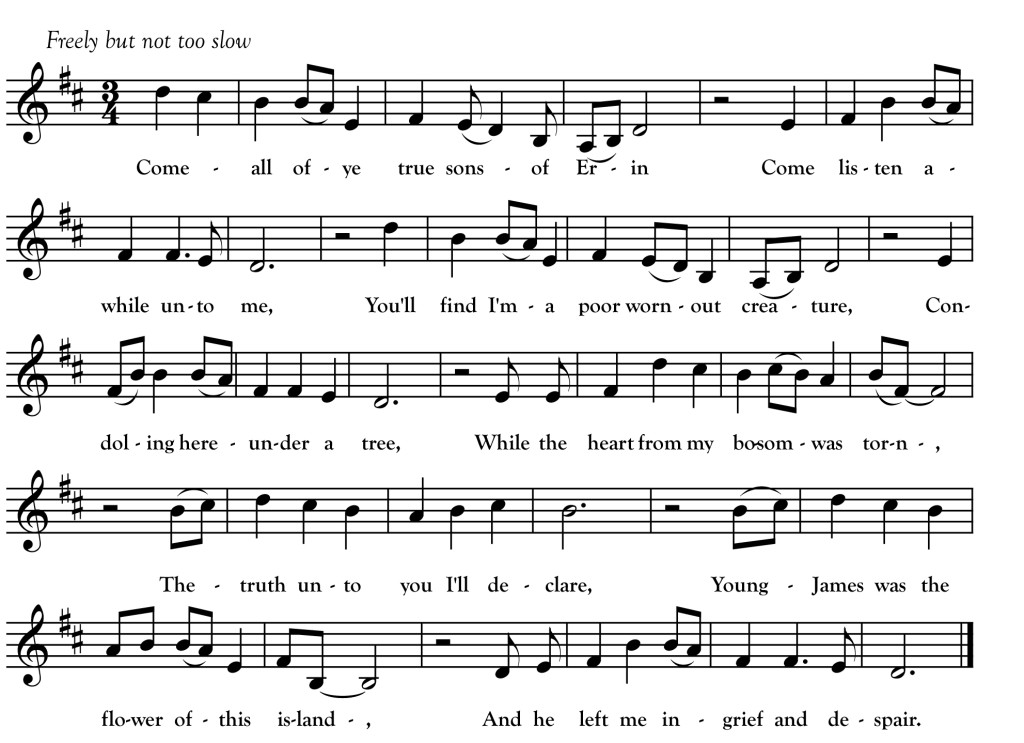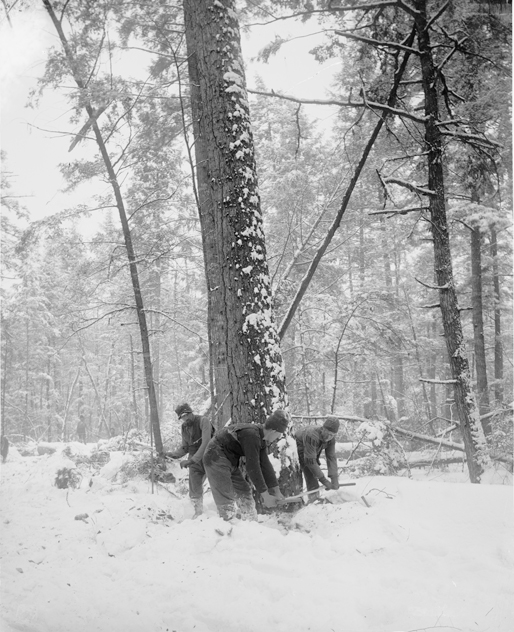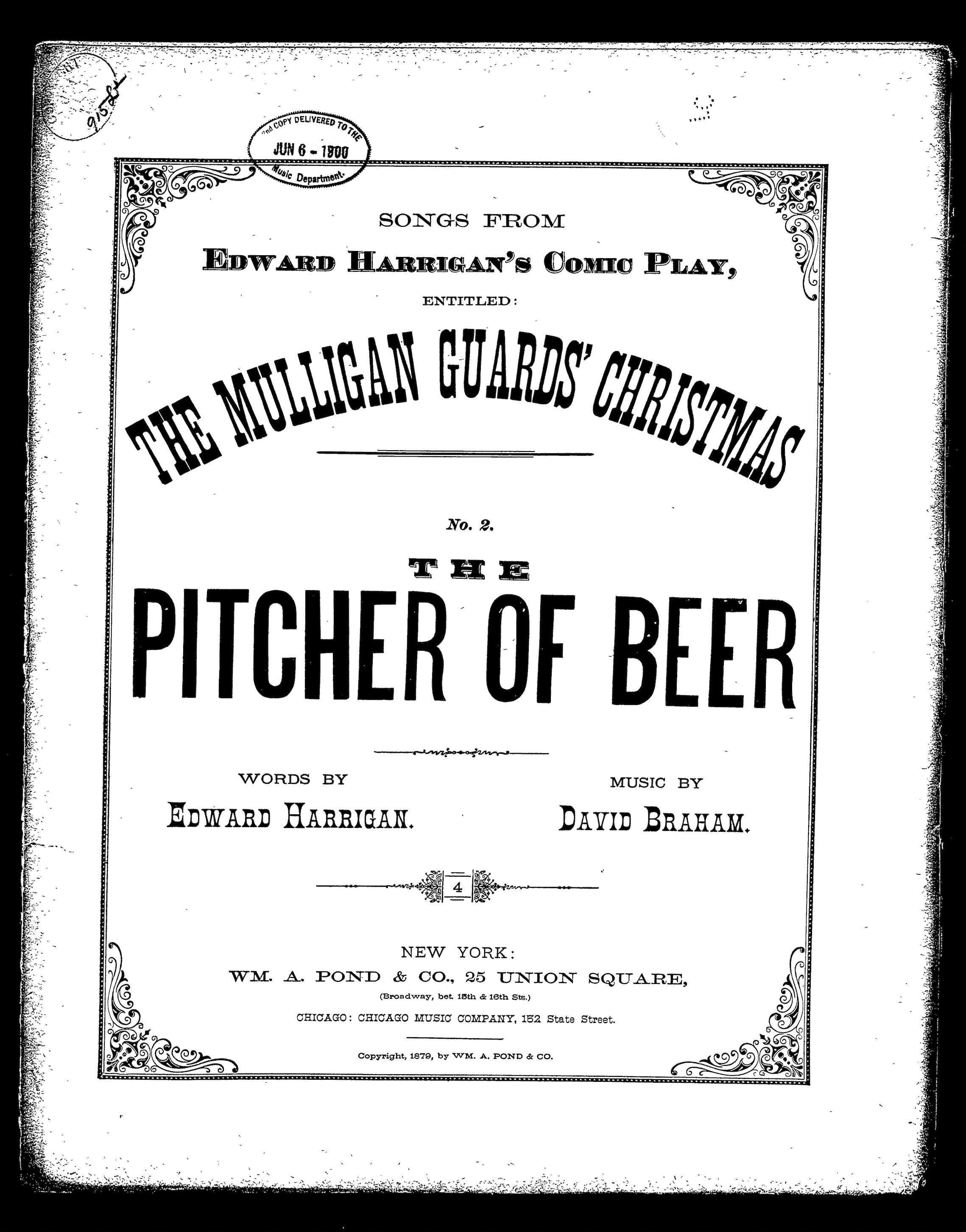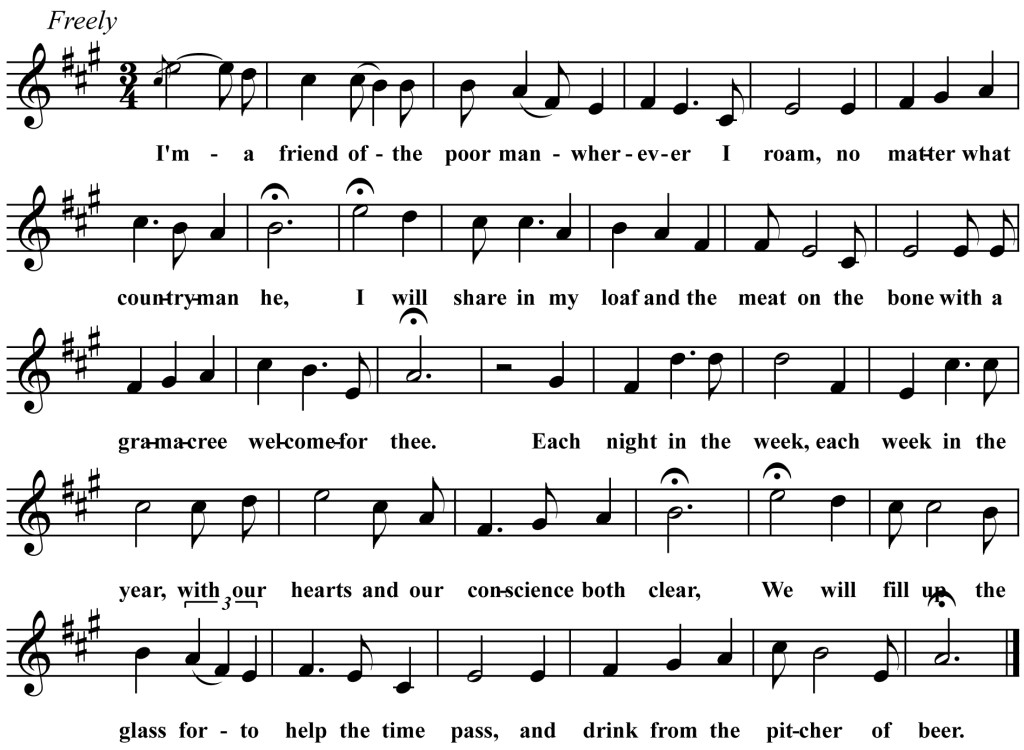St. Patrick’s Day
Come all of ye true sons of Erin,
Come listen awhile unto me,
You’ll find I’m a poor worn out creature,
Condoling here under a tree.
While the heart from my bosom was torn,
The truth unto you I’ll declare,
Young James was the flower of this island,
And he’s left me in grief and despair.
When first I beheld that young hero,
The hills and the valleys were green,
And the leaves they were all in full blossom,
Most beautiful there to be seen.
As she sat in her lone shady bower,
Those charming sweet notes she did play,
And the blackbird and thrush joined in chorus,
With her on St. Patrick’s Day.
Now my friends and my parents consulted,
And they found l was so well inclined,
False stories they told to my true love,
To banish me out of his mind.
But all that they said was a folly,
Every morning and evening I’ll pray,
I’m in hopes for to meet him with pleasure,
Once more on St. Patrick’s Day.
Now young James is the flower of this island,
The same I will never deny,
And the beautiful words that he told me,
I’ll never forget ‘til I’ll die.
But now he is crossing the ocean,
Every morning and evening I’ll pray,
I’m in hopes for to meet him with pleasure,
Once more on St. Patrick’s Day.
_____________
The Avalon Penninsula, on the rocky southeast coast of the remote Canadian island of Newfoundland, attracted a high concentration of Irish families as far back as the 1700s. Many Irish Newfoundlanders have roots specifically in the southeast of Ireland and, to this day, local accents are reminiscent of the Waterford Irish accent. (I highly recommend RTÉ’s incredible documentary The Forgotten Irish which includes footage from Avalon communities including several singers and is available free online.)
MacEdward Leach was the first song collector to bring recording equipment to Newfoundland. The recordings he made in small fishing communities are a treasure trove of beautiful songs. The above song was sung for Leach in 1951 by Cyril O’Brien of Trepassey, a small village on the Avalon. You can here the first verse of the Cyril O’Brien recording here (scroll down if you don’t see it right away).
Norah Rendell, Randy Gosa and I arranged an accompanied version of this song for Norah’s new album Spinning Yarns (officially launched this month). We based it on a snippet of Leach’s recording of this song and his transcribed text which, along with hundreds of other gems, is available online through the Memorial University of Newfoundland. The text above is Norah’s adaptation of O’Brien’s version and I made the transcription based on the Leach/O’Brien recording.
FUN ST. PATRICK’S DAY FACT: Due to its highly Irish population, Newfoundland is one of the only places outside of Ireland where St. Patrick’s Day is a public holiday!





